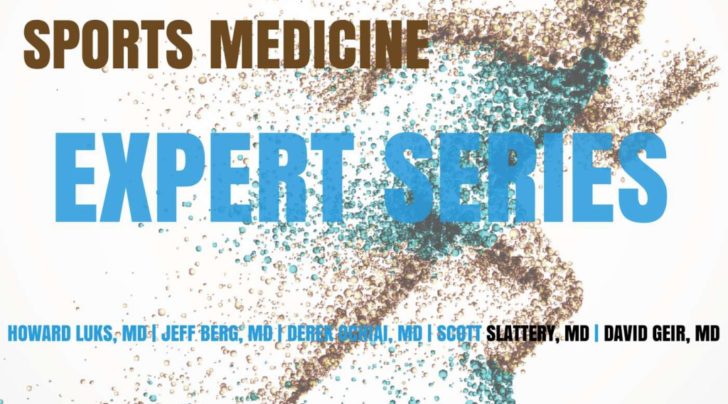
ACL tears are are occurring at an alarming rate. With lifelong implications, an ACL tear can be a devastating injury in a teenager. While 65-80% of athletes can expect to return to sports, that means that more than 20% will not. More worrisome is an ACL re-injury rate of 15-20% despite a well-performed reconstruction and well-executed rehabilitation phase.
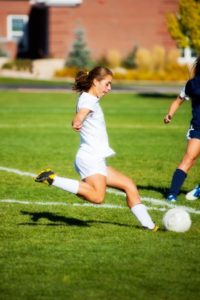 There is a common misconception in the patient community that ACL tears are a straightforward problem with a simple solution. Nothing could be further from the truth. Who requires an ACL reconstruction, how should the reconstruction be performed, which graft should be used to repair the ACL and when can an athlete return to sports are very important considerations that surgeons and patients wrestle with on a daily basis.
There is a common misconception in the patient community that ACL tears are a straightforward problem with a simple solution. Nothing could be further from the truth. Who requires an ACL reconstruction, how should the reconstruction be performed, which graft should be used to repair the ACL and when can an athlete return to sports are very important considerations that surgeons and patients wrestle with on a daily basis.
In this series of posts we are going to present the responses of five prominent Sports Medicine Surgeons (see below) with their thoughts about many of the issues surrounding an ACL injury in an 18-year-old athlete. Providing you with an opportunity to learn from 5 accomplished sports medicine Orthopedic Surgeons is something I am very happy to offer our readers. ACL surgery is not a straightforward process, and only those that need it should consider it.
So, without further delay. Here are 5 opinions on when we should consider ACL surgery in a young athlete.
When should we consider ACL surgery in an 18 year old athlete?
D.G. : As I would with any patient with an ACL injury, I would discuss both surgical and nonsurgical options. Given that the patient is an 18-year-old athlete, I think that almost certainly we would decide to proceed with surgical reconstruction. With the likely instability that would exist with an ACL-deficient knee in a young athlete trying to play a sport like soccer, I would worry about the risk of secondary injury to the menisci or articular cartilage.
D.O. : There is “no one size fits all” approach in my practice. If MRI shows a clear meniscal tear associated with the ACL rupture, I am more likely to recommend surgery, as the meniscus can be repaired simultaneously with the ACL reconstruction, and chances of healing the meniscal tear concomitantly with ACL reconstruction is high. If the patient does not have a meniscal tear and they were in their senior season of soccer WITH NO PLANS TO PLAY AT THE NEXT LEVEL, then I would talk to them about conservative management and possibly be bracing for recreational activities, and see if they can be active and happy with this alone. A positive Pivot Shift Test would make it less likely that an active individual could tolerate the instability without surgery, but definitely not impossible. Also, many times a Pivot Shift test is “falsely negative”, because the patient is subconsciously guarding and protecting their knee.
J.B. : I tell all pts who sustain an isolated ACL tear (if have other injuries can be different): only 2 smart options 1. Give up pivoting and jumping sports and activities (team sports, Racquet sports, trail running and hiking, dancing, etc.) or 2) have an ACL reconstruction. In 18 yo who is athletic, I don’t believe that there really is a choice. Even if the athlete felt they didn’t wish to continue, I would think that is unlikely. I would suggest ACL reconstruction.
S.S : I would recommend surgical treatment with ACL reconstruction for the vast majority of these patients. I always have a discussion with the patient and family about the natural history of ACL tears. I tell them that surgery is not mandatory, and discuss the risks and benefits of surgical and non-surgical options. If the patient has other associated injuries such as meniscus tears or other ligament injuries, I feel that surgery is almost always the best option. Even if it just an ACL tear, further problems are likely without reconstruction. Patients with ACL tears and obviously unstable knees on physical exam, that are involved in more than 50 hours per year of Level I sports, like soccer, are at very high risk for further instability episodes. These instability episodes can frequently cause further additional damage to the knee. This is my biggest concern with non-surgical treatment. At least 80% of patients with an untreated ACL tear, with a currently normal meniscus, will develop a meniscus tear within 10 years if they continue to be active. In addition to possible protection against further injury, an ACL reconstruction will more reliably allow most patients with an unstable knee to return to their sport with greater confidence and improved function.
S.M : My decision to operate on an 18 yo soccer player with an ACL tear is based on the level of instability of the knee and on whether or not there are other significant tears. I do not automatically recommend ACL reconstruction in patients with isolated ACL tears. Although it is uncommon, I have seen patients who have not had clinical instability after an ACL tear. I think these cases are probably due to the ACL not being 100% torn or the tear healed onto the PCL in such a way that it provides support. After an acute tear, I will send patients to physical therapy for 4 weeks to help regain motion and strength. After the initial therapy, I see them for re-evaluation. If there is no block to motion and the acute signs and symptoms are resolved, I ask them to slowly increase activities. If a patient is showing no signs of instability I continue them on physical therapy with the goal of doing a trial of soccer once all the signs of the ACL tear are resolved and the leg is back to pre-injury strength. If a patient feels that the knee is unstable after the initial therapy trial I will recommend ACL reconstruction. Cases which would require a sooner surgery are those patients who have a displaced bucket handle meniscus tear. In these cases, I will do a knee arthroscopy and meniscus repair. These patients will undergo rehabilitation and possible staged ACL reconstruction.
Notice the common threads that are emerging in this discussion:
- Not all patients need to consider an ACL reconstruction… but most do.
- If you have also torn a meniscus or if you have torn more than one ligament then surgery to reconstruct your ACL is likely to be your best option.
- People who choose not to have an ACL reconstruction are at high risk for secondary injuries such as a meniscus tear or an injury to the cartilage or cushioning on the ends of our bones. Both of these injuries dramatically increase your risk for developing arthritis in the knee.
The participants :
D.G.: Dr David Geier : Twitter: @DrDavidGeier ; Website
Do you have questions regarding an Orthopedic injury or longevity?
Do you want to talk to an expert who can listen to you for 45-60 minutes and explain the options in detail?
Dr. Howard Luks offers remote guidance sessions to review your X-ray or MRI images and explain your options.
Dr. Luks has also received hundreds of requests for educational sessions on the topics discussed in his book, Longevity Simplified.
J. B.: Dr Jeff Berg: Twitter: @DrJeffBerg ; Website
D.O.: Dr Derek Ochiai: Twitter: @DrDerekOchiai ; Website
S.M.: Dr. Steve Mora: Twitter: @myorthodoc ; Website
S.S: Dr Scott Slattery: Twitter: @sportscaduceus ; Website

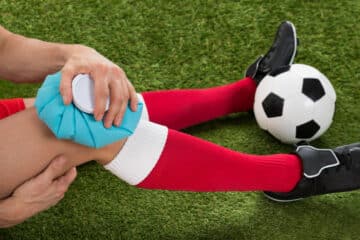

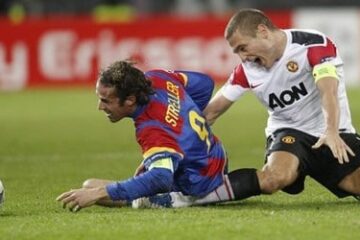
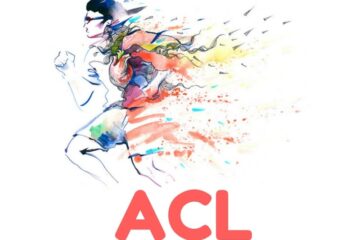








Carl Thomas
Hi Dr Luks,
I’m 23 now, at the age of 14 I had a ACL accident. This was followed by intensive physio as I was still growing and a procedure could potentially hinder bone growth in my left leg (ACL accident leg)
Years passed since then, I have now decided to proceed with a ski instructors course which is quite challenging however not Ski racing, which is how I tore it in the first place.
I will commence in November, and until then I will undergo heavy physio.
Since starting to work out last week, instability and slight throbbing pain has come back (whilst being awfully stiff in my muscles from lack of exercise!!) I will rest for a couple days, then continue again. Hopefully it was a one of episode.
My question is, after so many years of my body getting used to a full acl tear, is it ok to undergo surgery? Are there any professional trainers out there that do their job regardless of ACL? I’m very unsure at this stage and would love your feedback as your article Has been the best I’ve read so far.
Thanks a lot, love your work.
Kind regards,
Carl
Thanks Carl … I am glad that our article was useful!
It is possible to reconstruct an old ACL tear. But without examining you and seeing your xray and recent MRI studies I can not comment about specific treatment recommendations. See a good ACL surgeon in your area.
Anthony Rodriguez
Hey Dr. Luks,
I don’t have much of an active lifestyle but do like to dance every now and then during family gatherings and am greatly concerned about my ACL.
My MRI impression has stated the following:
1. Bone contusions at the medial and lateral tibial condyles.
2. Full thickness tear of the anterior cruciate ligament.
3. Partial tears/sprain of the medial lateral collateral ligaments at the proximal insertion. Associated soft tissue edema.
4. Moderate joint effusion extending into the suprapatellar bursa.
My questions below:
Is a full thickness tear considered a complete tear?
If my ACL is torn, should I consider ACL surgery considering the other 3 issues listed in my MRI?
Thank you very much,
Anthony
Hi Anthony…
Yes, I full thickness tear is a complete tear.
Many people live long happy lives without an ACL.
Whether or not surgery is necessary depends on your lifestyle and occupation… as well as whether or not you experience instability or giving way after physical therapy has restored motion and strength.
Jay
Are families predisposed to this type injury? If it happens to one of the sibling, should I be concerned about the others playing the same sports?
Great question Jay … some in the sports community do believe there might be a risk… HOWEVER… there are many, many variables involved. So we can not simply give you a yes or no answer. We do, however, know that taking 15-30 minutes to warm up and follow the FIFA 11 program can prevent many ACL injuries. https://www.ncbi.nlm.nih.gov/pubmed/28389864
George
Hello Howard J. Luks,
I did MRI. Could you tell how urgent to have a surgery or to see a doctor in your oponion. I do have an appointment with my orthopedic doctor in 5 days. Thanks in advance
Here is IMPRESSION: MRI right knee.
1. Mild marrow edema within the medial femoral condyle and posterior
tibia plateau concerning for areas of marrow contusion.
2.Complete ACL tear.
3.Displaced tear of the posterior horn of the lateral meniscus.
4.Small knee joint effusion with mild nonspecific synovial
proliferation and small ruptured Baker’s cyst.
You have a significant knee injury .. I’m sorry. Good luck with your Orthopedic visit.
Tiffany Termeer
On Aug 5 2017 while kick boxing I did a complete tear of the ACL ,menicus, and legiment tear on one side of my knee. I have been in a lot of pain . I have seen an orthopedic surgeon. I’m scared to have surgery but I’m afraid of what life without it will be like. Do you feel like it is in my best interest to have the surgery I’m not a athlete I’m 37 yrs old I have two young children nine and six and I want to be able to do stuff with them. Your opinion would mean a lot .
Sincerely.
Tiffany Termeer
We can not answer that question for you… sorry.
There are plenty of people whose knee feels stable without ACL surgery. Some people continue to have instability despite Physical Therapy, etc.
Without examining you and talking with you I can not comment on which treatment might be best for you.
Shariann Forker
My son is a 17 year old senior who plays football. He hurt his knee and we had a MRI done. The orthopedic surgeon is suggesting surgery and did not offer any other options. We want to seek a second opinion but time is of the essence. His season is about to begin and he would like to play part of his senior year. This is what his report said, there is a complete acute tear of the ACL with associated contusions involving the lateral femoral condyle and posterior corner of the lateral tibial plateau. Is there anyway he can can avoid surgery and just have rehab and wear a brace?
That’s risky… I would find a second opinion to have this conversation with. Your son’s history (complaints) and his physical exam matter when trying to address this question.
Dwayne
I am 42 years old and I ruptured my ACL when I was 21, over the years I have had 2 knee scopes, now my knee has become very painful and unstable, wondering if an ACL reconstruction is something I should do or if there is other options, my quality of life and job are being compromised as I am a carpenter
Hi Dwayne… that depends on how much arthritis is present now. In a mildly or moderately unstable arthritic knee, an ACL reconstruction could help or hurt. There are too many variables to consider. I would seek out a few good in person opinions.
Good Luck
HJL
Lyla
I’m a 17 year old high school senior that tore my meniscus about a month ago. When my doctor went in to repair my meniscus, he saw that my ACL was completely in half. My meniscus is now fixed, but my ACL is still in half. My doctor recommends not doing ACL reconstruction because of various reasons. I am okay with giving up sports, but I’m still going to want to work out and stay fit! (Running on treadmill, Burpee’s, lifting). Are these things I can do with a torn ACL?
Alessandra D
Hi my name is Alessandra and I’m 24. I tore my ACL in a fitness class about a week and a half ago. I had one orthopedic tell me I completely tore my ACL and another tell me it’s hanging on by a few muscle fibers. I live a very active lifestyle and I’m concerned because Doc #2 is suggesting I try PT for 6 weeks before considering surgery. He believes PT will completely fix this almost complete tear. I’m afraid it will partially heal but not fully. I have no other tears and no previous injuries. Doc #1 no longer does surgeries.
I can’t fully extend my leg, although I’m very close. I have no pain when walking with the brace and minimal instability with the brace. I’m nervous because I don’t want to live restricted physically. I regularly do zumba, yoga, lift, etc. I also occassioanlly do crossfit.
I’m very conflicted with what to do and would love some advice. What are your professional opinions on surgery vs. PT? Would it be wise to find another orthopedoc and get another opinion?
See another doctor if necessary. In young active people the most recent literature shows that an ACCL reconstruction is protective against further injury. Recent science also supports early versus late or delayed reconstruction in young active people. That being said… it is important to see a PT and get your motion and strength back in preparation for the procedure
Gethin King
Hi I got a mid portion tear to my acl my mcl has torn completely, got a tear in my lateral meniscus a pcl sprain and other little bits.
Do I need a op on it and if so what kind of op?
These were the findings in MRI scan
Tricky injuries… if your exam, not only the MRI, shows that your MCL is a complete (Grade 3) tear then many of us might consider fixing it. But that depends on your physical exam and the comfort level of your physician. I can not lay out a treatment plan for someone I have not examined or spoken to in the office. There is a post or two on my site on MCL and ACL tears.
Sophal Lee
Treatment for ruptured ACL. Anyone have opinions on platelet rich plasma therapy? Or is a complete ACL reco the best option to return near full recovery?
Sasha
Dr. Luks
I did not see any of these doctors mentioning high possibility of having OA in surgicaly repaired knee. To me reconstruction of an ACL is like leaving problems for the future. Almost every ACL reconstructed knee ends with some type of OA. If I am a doctor I would definetely advise any of these 18 year old to forget about going back to high demand sports because they will end up with more problems later. I also think more research should be done to effectively prevent possibility of OA in reconstructed knees. It seams to me that the procedure itself is very invasive since the bones have to be drilled for new ligament to be placed.
There’s a risk of developing OA regardless. Not all ACL tears – treated surgically or non-surgically will develop arthrosis. The main function of an ACL reconstruction in an active individual is to prevent a meniscus tear which will increase the risk of arthritis significantly. unfortunately, telling a 16-20 year old to stop playing sports isn’t realistic. NO harm in saying it… but very few if any will heed that advice.
Carrie
I work as a house keeper and I fell off the ladder and tore my ACL, my job requires me to be up and down on ladders do you recommend the reconstruction surgery are or not..
You should not be going up and down ladders if your knee is unstable. Please be very careful
Harry Newman
Informative blog, good and gets straight to the point, also good responses from readers!
Darryl Hawkins
I appreciate the response Dr Luks.
Darryl Hawkins
Does isolated bundle reconstruction have good results for partial tears in a 21 year old?
ACL augmentations can work well… IF the other bundle truly is uninjured.
Jonathan hersch
great article Howard. I used to think ACL was a slam dunk. Not anymore. So much to consider when approaching there patients thanks for posting
Thanks Jonathan … We would love to have you participate in other discussions if you’re game :-)